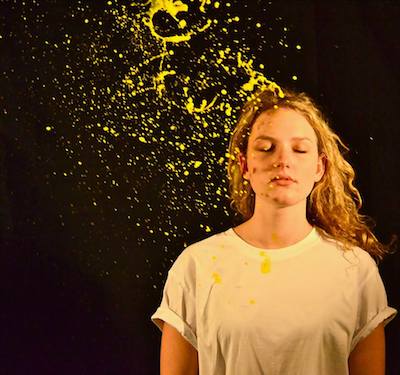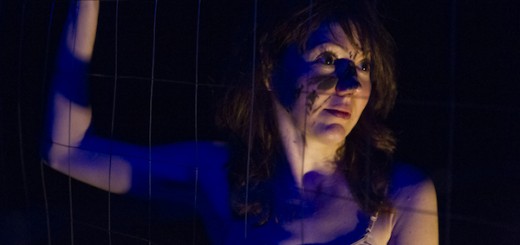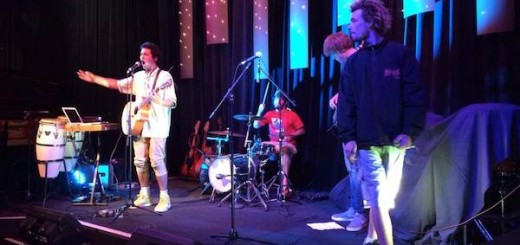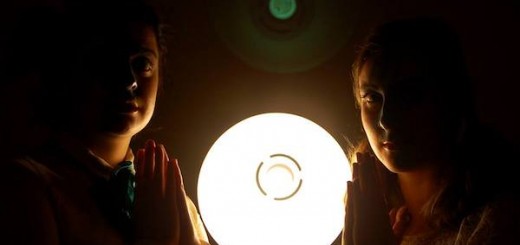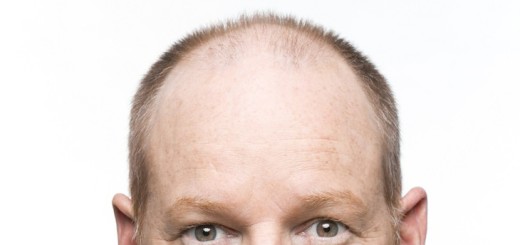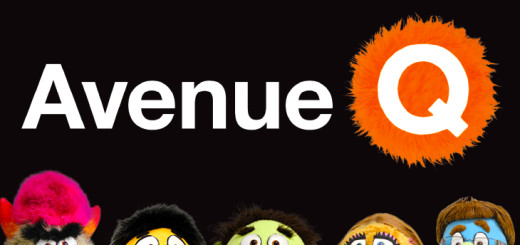
Review – (finger)prints
The Adelaide Fringe boasts a seemingly innumerable array of shows, ranging from international headliners to up and coming local talents. The former usually glory in the limelight of sold-out shows and widespread digital and print promotion; the latter can easily fall under the radar, not gaining the attention or praise they rightly deserve. (finger)prints is one such show.
Set within the cavernous Channel Nine Kevin Crease Studios, the lights come on to reveal a sparse share house – minimal yet effective – with Sam (Emma Kew), Max (Keenan Haynes), Oli (Harry Breese) and Esther (Maddy Herd) going about the business of whatever business those in their late teens/early twenties go about. Three bedrooms house the characters, whilst a living room in turn houses only a table, chairs, some books and empty bottles. Whether it’s the aesthetic, the nonchalant behaviour of the actors or my own past, I’m immediately convinced of this situation, transported into whatever reality Chloé Eckert had in mind when penning the play. The addition of some kind of industrial electro garage music makes almost too much sense (and, yes, I believe I did just make up a genre).
Without giving anything away, the basic premise centres upon Esther being killed by a drunk driver. Oli and Sam desperately try to convince Max that he did it through such brutal levels of selfish machination that they could only be summoned by minds in utter desperation.
But how, I hear you ask, dear reader, does Esther fit into this if she’s dead? Well, I’ll tell you. Just be patient. (finger)prints is wrought with flashbacks. Eckert has written these into the script so seamlessly that there could be no other way of telling the story. Director Hannah Fallowfield uses subtle techniques, such as light and sound changes, to signify this, making it seem genius once you’ve realised it. Esther adheres to the tenants of the physical world during said flashbacks, but in the present she is a ghost that only Max can see (watch for her walking through walls).
[Aside: don’t try to sit there and figure out whodunit or try and piece the story together chronologically in your mind. Please resist. There’ll be time for that afterwards, when you’re steeped in reflection.]
This review wouldn’t be complete without mentioning the best part of the entire performance: the actors. They gave me The Fear. Watching Oli, Max and Sam navigate through this desperate situation in such a convincing fashion made my stomach knot. Their anxiety pervaded the entire theatre. The complete immersion of Emma into her character, Sam, was a constant source of awe. This girl is next level good. The manipulation of Max by her and Oli made me cringe. Both Oli and Max were great but, as it was the first night, they seemed hesitant in parts – which is why I’m going to see it again, and revel in their progress. Yet I could identify with them, in some way I can’t describe, which is brilliant.
Finally, Maddy. Given the position of her character, her performance acted as a brutal juxtaposition between her and the others. Switching roles between ghost and carefree love interest of Oli, she seemed to float through everything like some benevolent and divine spirit, dictating the fates of these three poor souls. Although she is the axis around which the play revolves, she had this way of being present and yet absent. She never left the stage yet she could make herself unseen. It was a quiet yet vital performance.
Eckert and Fallowfield have created in (finger)prints a production that makes you think and feel emotions most of us never have to. It is a fine example of young playwrights and actors having a keen grasp on their craft and doing the time-honoured tradition of tragedy a service. It was cathartic. I have been purged of all my pity and fear.

